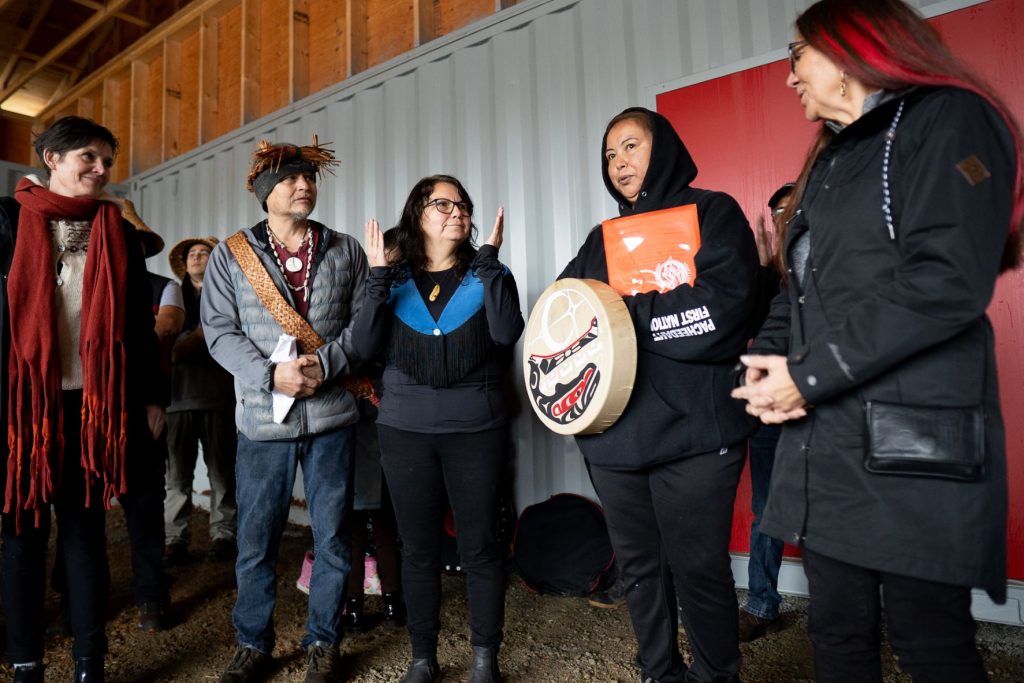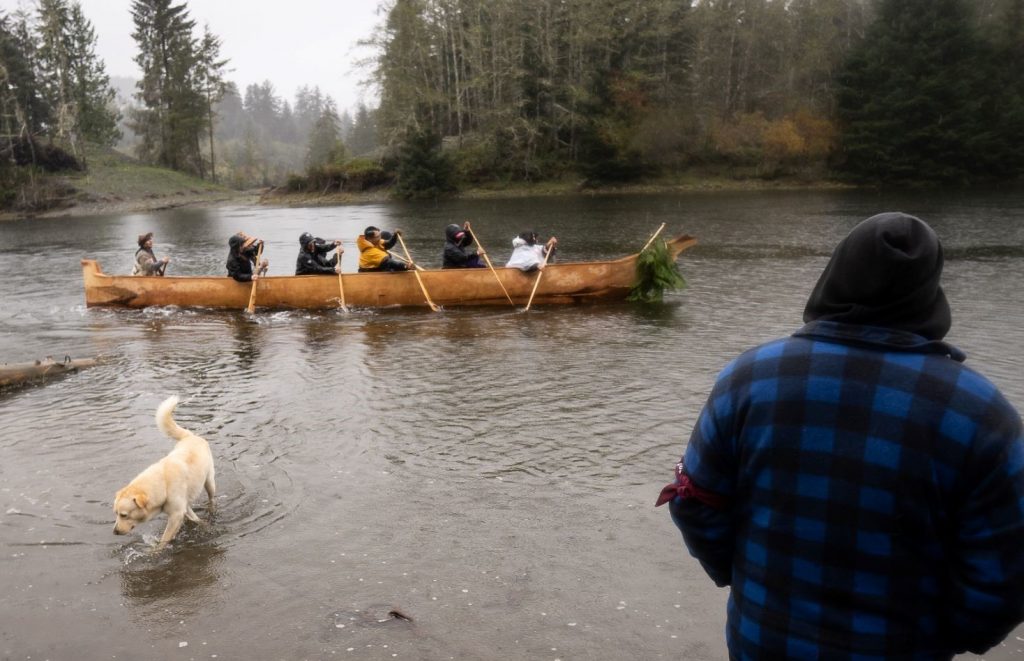A canoe is not just a boat
How an award-winning SIT alum is reviving her Indigenous community
May 31st, 2022 | SIT Graduate Institute
Dr. Sarah Wright Cardinal, an alumna of the MA in TESOL program at SIT Graduate Institute, has been awarded the 2022 Ehor Boyanowsky Academic of the Year Award from the Confederation of University Faculty Associations of British Columbia.
The award “celebrates faculty who contribute in significant ways to our citizenry and democratic landscape, our intellectual life, and our economy,” according to the organization’s website. It comes after a two-year canoe-building project that aims to bring more Indigenous content into course curriculum and research.
An assistant professor in the School of Child and Youth Care at the University of Victoria, Dr. Wright Cardinal is a Cree educator from northern Treaty 8 territory with Coast Salish, Dene, and Nuu-chah-nulth extended family relations. Her work explores colonial disruptions to Indigenous identities and addresses these fractures with land, water, and spirit-based teachings and practices that contribute to community wellness.
We’re healing from genocide and assimilative policies. So, it’s critically important to provide experiences for youth in their home communities. And we need our young men well for our communities to be well.
Dr. Sarah Wright Cardinal
Following are excerpts from a University of Victoria (UVic) article “Canoe creation re-awakens Pacheedaht ancestors” by Suzanne Ahearne. It delves into Dr. Wright Cardinal’s two-year project to document the carving of a 33-foot cedar canoe, and in the process reclaim Nuu-chah-nluth teachings, empower Pacheedaht youth, and build language, cultural mentorship, and wellness models for rural and remote Indigenous communities.

Dr. Sarah Wright Cardinal (center) stands with community members to receive gifts of drums in the canoe's pre-launch ceremony.
Photo courtesy of Suzanne Ahearne/UVic
The idea—to involve a whole community in the carving of an oceangoing canoe, and surround it with the teachings and culture of their pre-colonial ancestors—was designed with young people in mind. The project aimed to revive confidence, health and well-being, and pride—in particular, among its young men—by creating a work of great physical and symbolic weight.
The canoe, which over the course of the four-month carving process “revealed itself as female,” is the centerpiece of a two-year project that emerged from and is led by the Pacheedaht First Nation (PFN), in partnership with UVic Child and Youth Care Professor Sarah Wright Cardinal. It is the first seaworthy dugout canoe to be carved in the community for more than 50 years.
“Reclaiming Nuu-chah-nulth teachings to empower and strengthen the roles and responsibilities of Pacheedaht young men,” is funded by a $200,000 grant from the Social Sciences and Humanities Research Council, a federal agency that supports post-secondary research. This partnership is UVic’s first memorandum of understanding with the PFN, one of 12 First Nations with reserves in the Capital Regional District.
This is a ceremonial, education and community wellness journey. And it’s a necessary part of child and youth care today.
Dr. Sarah Wright Cardinal
“We’re healing from genocide and assimilative policies,” says Cardinal, who is Cree from Treaty 8 territory and has a PhD from UVic in curriculum and instruction. “So, it’s critically important to provide experiences for youth in their home communities. And we need our young men well for our communities to be well.”

Photo courtesy of Suzanne Ahearne/UVic
Asked how this type of academic research and partnering differs from traditional research, Cardinal says it’s not what many think of as scholarly work. “This is a ceremonial, education and community wellness journey, and it’s a necessary part of child and youth care today.”
“Everything stays in community. This respects the intellectual property of Pacheedaht and Nuu-chah-nulth teachings. The ancestral and local land and water-based knowledge is enlivened at home in the village, nurturing strong kinship family systems.”
Cardinal sees part of her role as a conduit to knowledge-sharing back to the university community: to bring Indigenous content into course curriculum as well as into research, and model “ethical, responsible, Indigenous research.”
